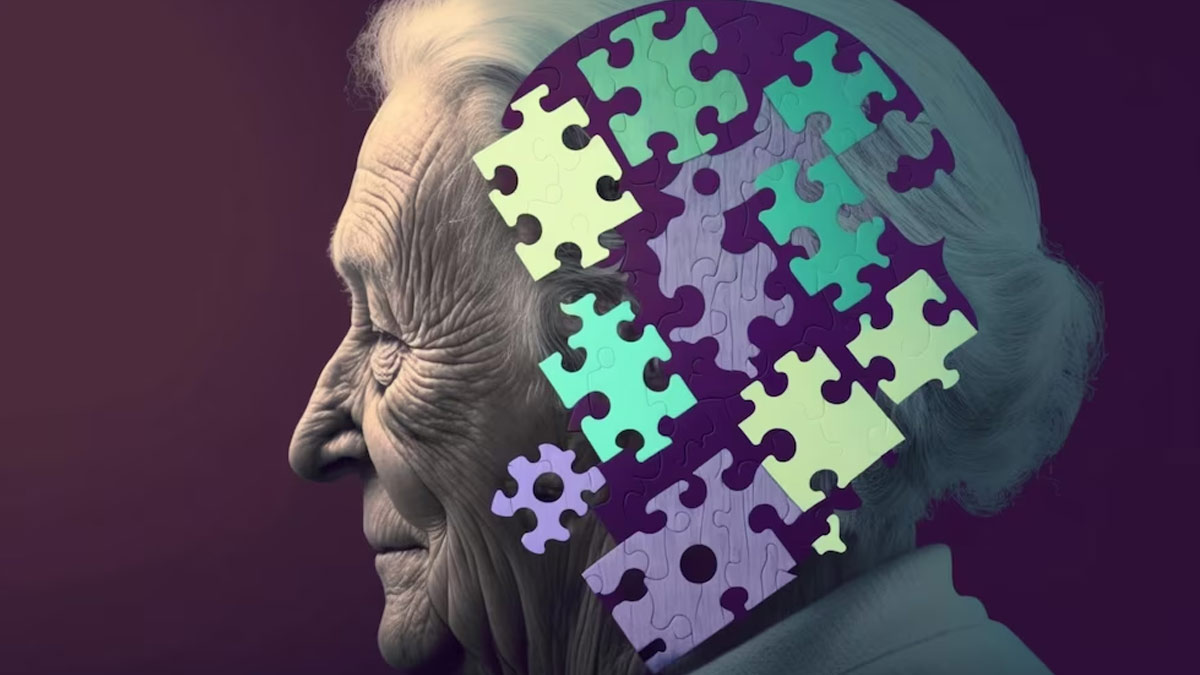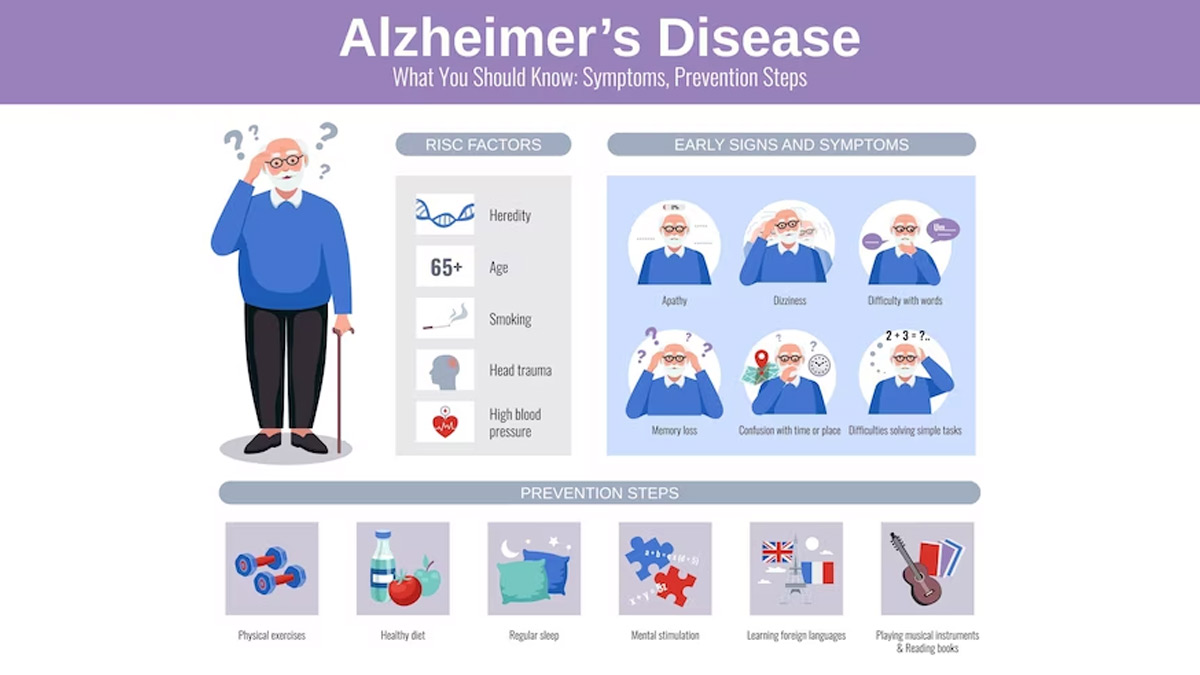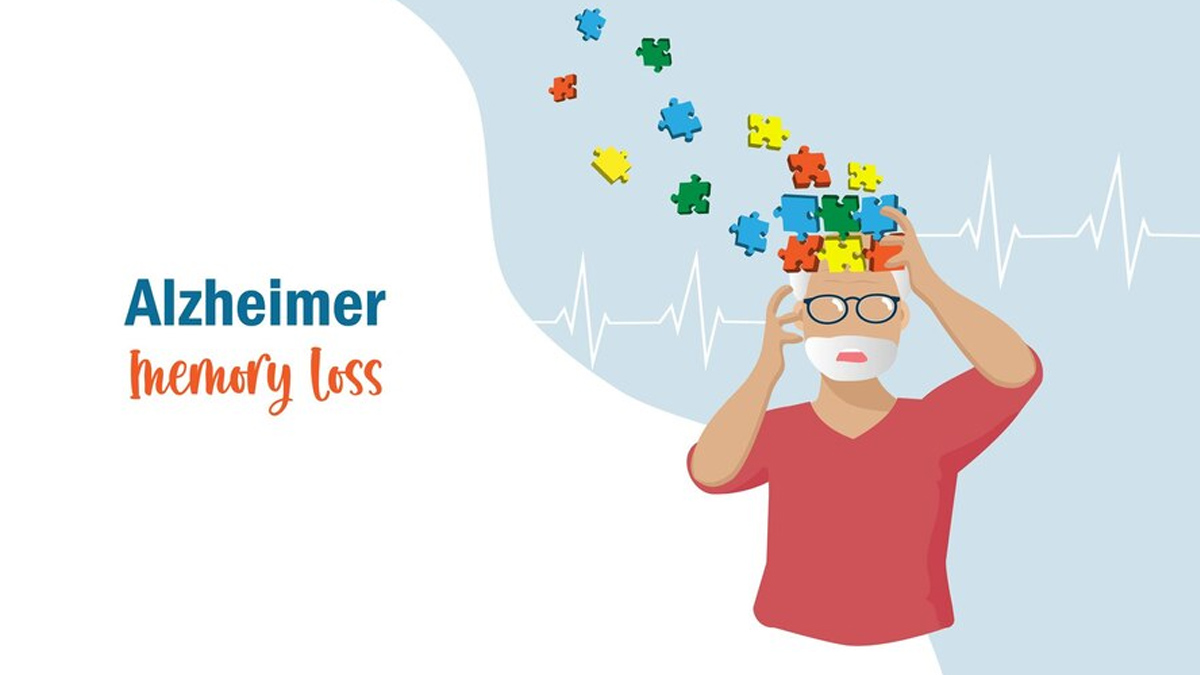
Alzheimer’s is a brain disease characterised by memory loss, forgetfulness and weakening cognitive functions. This is prevalent in senior citizens but its early onset might begin from the late 30s. Alzheimer’s is a progressive disease with no treatment which is why prevention and management are the only ways to improve the quality of the life of the patient. On the occasion of World Alzheimer’s Day, we reached out to Dr Kailas Mirche, Neurologist, Citizens Specialty Hospital, Hyderabad to get answers to some frequently asked questions about Alzheimer’s.
Table of Content:-
Q1- Why does Alzheimer's disease occur?
Dr Mirche defines Alzheimer's disease, a complex neurological condition, and its exact causes are not fully understood. However, there are several key factors and processes that contribute to the development and progression of Alzheimer's disease.
“One of the main causes of Alzheimer's disease is beta-amyloid protein that gets in the brain. These fragments clump together to form plaques, which can disrupt communication between brain cells and trigger inflammation. The exact role of beta-amyloid in Alzheimer's disease is still under investigation, but it is believed to play a central role in the development of the condition. Another characteristic of Alzheimer's disease is the presence of abnormal tau protein tangles inside neurons (brain cells). These tangles interfere with the cell's ability to transport nutrients and other essential materials, leading to cell dysfunction and death,” he adds.
Also Read: All About Alzheimer’s Disease, It’s Stages & Progression Through Infographics
Q2- Is Alzheimer's a form of dementia?

The answer is Yes, Alzheimer's disease is a form of dementia. According to Dr Mirche, Dementia is an umbrella term used to describe a group of cognitive disorders characterised by a decline in memory, thinking, reasoning, and the ability to perform everyday activities. Alzheimer's disease is the most common and well-known form of dementia, accounting for a significant percentage of dementia cases.
Q3- Can Alzheimer's be reversed?
At present there is no way to reverse Alzheimer's disease. However,Dr Mirche states that various newer treatments may help in slowing down the progression of this condition. These treatments do not reverse the underlying damage caused by the disease; rather, they seek to provide some relief from symptoms and improve the quality of life for affected individuals.
Non-drug therapies, such as cognitive stimulation programs, occupational therapy, and physical exercise, can help individuals with Alzheimer's maintain their cognitive abilities, manage behavioural symptoms, and enhance their overall well-being.
Also Read: 7 Alzheimer’s Disease Facts To Be Aware Of

Q4- Can Alzheimer's kill you?
Dr Mirche quotes, “The disease itself does not directly cause death, but rather, it can lead to a range of complications and health issues that, collectively, can increase the risk of mortality.”
Q5- When does Alzheimer's start?
Answering when is the early onset of Alzheimer's, Dr Mirche says that Alzheimer's disease typically begins with subtle changes in memory and cognitive function that may go unnoticed or be attributed to normal ageing. It progresses slowly over several years, and its onset can vary from person to person. Alzheimer's is often categorised into three stages: early-stage, middle-stage, and late-stage.

Early-onset Alzheimer's disease is a less common form of the condition that affects individuals under the age of 65. It typically presents with similar cognitive and functional changes, but it occurs at a younger age, which can have unique challenges for both individuals and their families. Early-onset Alzheimer's can be caused by genetic mutations that are inherited or can occur sporadically. The exact age at which Alzheimer's begins can vary widely, but it is more commonly diagnosed in individuals who are 65 years or older (late-onset Alzheimer's).
Also Read: Regular Intake of Olive Oil Lowers risk of Heart Disease, Alzheimer’s, and Cancer
Q6- Can Alzheimer's be prevented?
As per Dr Mirche, Alzheimer's disease is a complex condition with multifactorial causes, and while certain risk factors are associated with its development, the interplay of genetics and environmental factors makes prevention a challenging endeavour. However, there are several strategies that may help reduce the risk of Alzheimer's. Here are some ways to reduce the risk of Alzheimer’s:
- Engaging in regular exercise, such as aerobic activities like walking, jogging, or swimming, may have a protective effect against Alzheimer's. Exercise helps improve blood flow to the brain, reduces inflammation, and promotes the growth of new neural connections.
- Adhering to a balanced diet rich in fruits, vegetables, whole grains, lean protein, and healthy fats can contribute to brain health.
- Keeping the mind active through activities like reading, puzzles, learning new skills, and social interaction may help maintain cognitive function and potentially lower the risk of cognitive decline.
- Chronic stress may contribute to cognitive decline, so stress reduction techniques like mindfulness, meditation, and relaxation exercises can be beneficial.
While genetics can play a role, lifestyle factors can also significantly influence the outcome. A combination of a healthy lifestyle, regular medical checkups, and staying mentally and socially active can contribute to better brain health and potentially reduce the risk of Alzheimer's disease.
Watch this video for detailed information
Q7- Can Alzheimer's be cured?
Dr Mirche answers, “There is no cure for Alzheimer's disease. However, it's important to understand the complexity of this condition for managing it. Alzheimer's disease is a progressive neurological disorder characterised by the accumulation of abnormal protein deposits (beta-amyloid plaques and tau tangles) in the brain, leading to cognitive decline, memory loss, and eventually, severe impairment in daily functioning.”

“Timely diagnosis of Alzheimer’s is crucial to initiate needful treatments to manage symptoms and slow down the progression of the disease. Cognitive assessments, brain imaging, and biomarker tests are some of the diagnostic tools used to detect Alzheimer's disease in its early stages,” he adds.
Vascular health is closely linked to brain health, and conditions that affect blood vessels, such as high blood pressure, diabetes, and atherosclerosis, can increase the risk of Alzheimer's disease. Certain lifestyle choices and environmental factors may influence Alzheimer's risk. The interplay of these factors can vary among individuals, making it challenging to pinpoint a single cause.
References:
https://www.alz.org/alzheimers-dementia/what-is-alzheimers
https://www.nia.nih.gov/health/what-alzheimers-disease
How we keep this article up to date:
We work with experts and keep a close eye on the latest in health and wellness. Whenever there is a new research or helpful information, we update our articles with accurate and useful advice.
Current Version